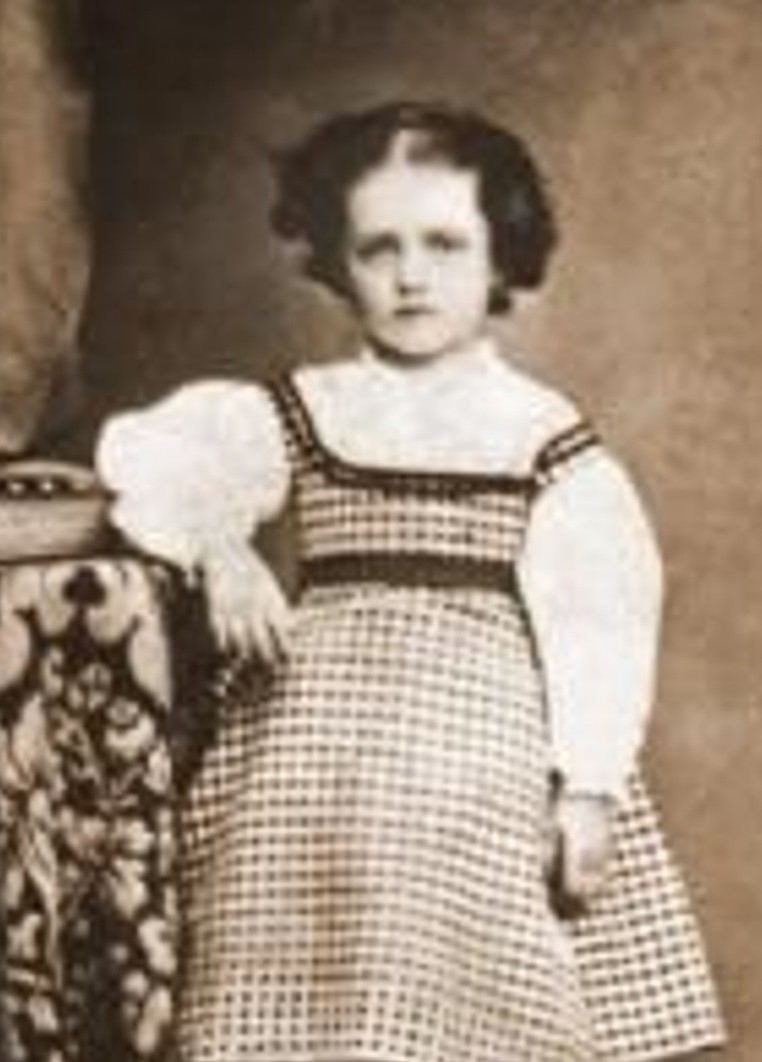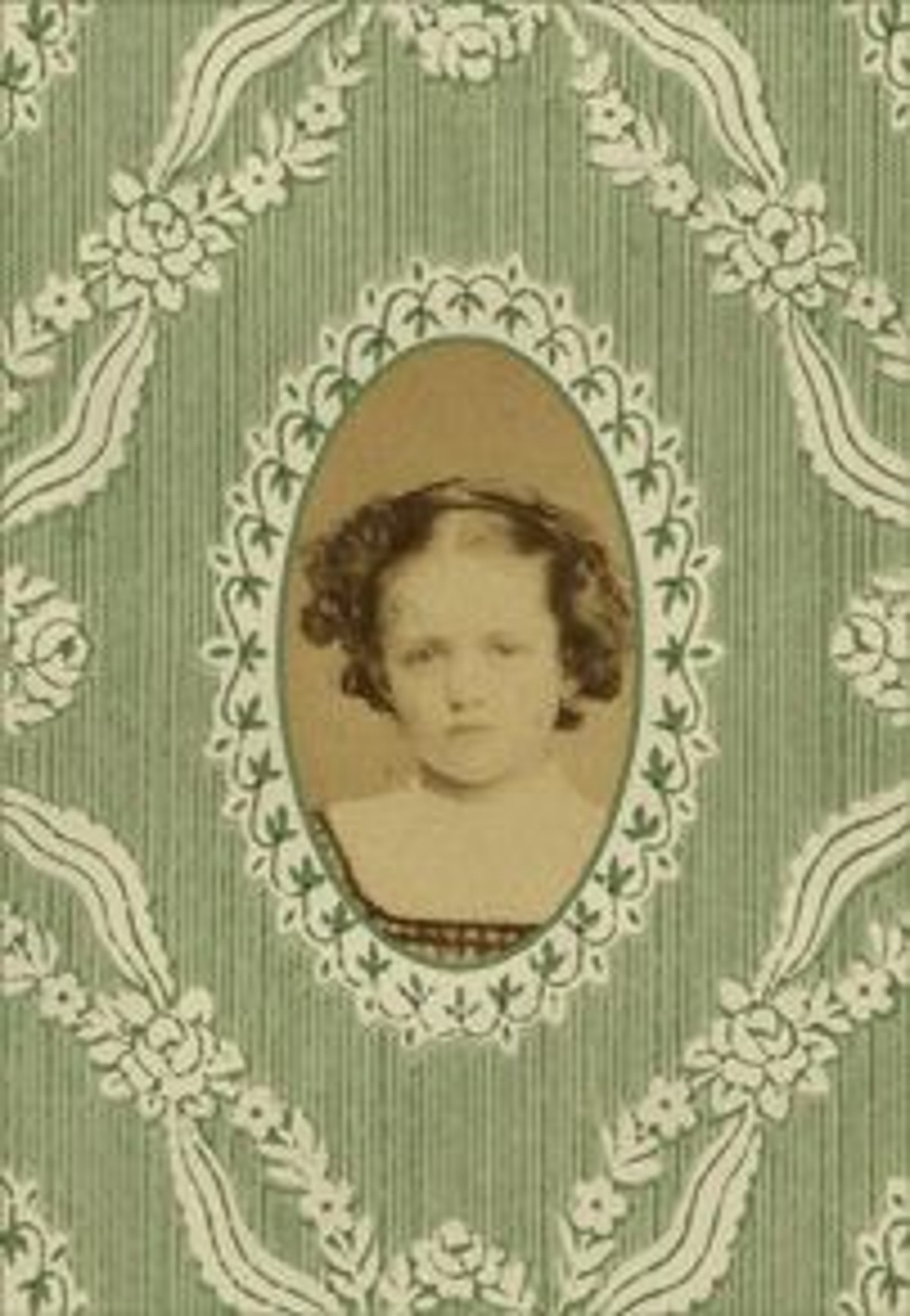HÉLÈNE - '...I shall soon be well again . . . yes, very soon . . .'


Marie-Hélène Martin was born in Alençon, France, on October 13, 1864--the fourth of nine children of Louis and Azélie Martin. Hélène was an elder sister of St. Thérèse's, although they never met on earth since she died at age five before Thérèse was born.
Like her older sisters, she was baptised at St. Pierre de Montsort, with her eldest sister, Marie, serving as her Godmother and, according to a letter her mother wrote, "Mr. J" served as her Godfather. We do not know for certain who he was, but it is likely he was a friend of her father's.
Hélène was the first of the Martin children that had to be sent to a wet nurse as her mother was not able to nourish her sufficiently herself. At that time, there was no other safe way to feed a young baby. Fortunately, Hélène’s wet nurse proved reliable. In the autumn of 1865, Hélène was back with her family.
Among the small daughters who enlivened the home, Hélène seemed marked with some mysterious sign. She was described as "enchanting," "fresh as a rose at morning," "as affectionate as could be wished," and it was said that "her precocious intelligence gave her chatter a charm all her own." Her photograph shows refined, delicate features, with something in her countenance of a gentle gravity that makes one think of the world beyond.
Almost unknown to her parents, a sort of languor was silently undermining her health. By the end of 1869 she was suffering from a series of infections and from recurrent fevers, and she seemed to tire easily. The doctor who attended her did not think there was a serious cause. However, on February 22, 1870, after scarcely a day's illness, and without the doctor having realized the gravity of the case, the dark wing of the angel of death touched her. While we cannot be certain what caused Hélène’s death, having studied the evidence in her mother's letters, some doctors think that it was probably leukemia. Her death was the third of four children the Martins lost in the short span of three years and eight months (February 1867 to October 1870).
Her mother, who bitterly reproached herself for this unexpected end, draws a sad picture of the last hours:
“That which hurts me the most, and which I can’t get over, is that I didn’t better understand Helene's condition . . . I had the doctor come and he told me that he found no obvious illness, and that he saw no need to come back, unless she became worse. Sunday evening she became oppressed by something. Right away I sent for the doctor. He was not in, and did not come until Monday morning. He told me the child had a fever and a congested lung, that the lung was in serious danger and that we should feed her only broth . . . after he left, I looked at her sadly, with her eyes glazed over, no life, and I began to weep.
"Then she put her little arms round me and did her best to comfort me. All day she kept saying, 'My poor little mother has been crying.' I sat up with her, and she had a very bad night. In the morning, I asked her if she would take her bouillon. She said yes, but could not swallow it. However, she made a last effort, saying to me, 'If I eat it, will you love me better?'
"Then she took it all but suffered dreadfully afterwards, and I did not know what was happening. She looked at a bottle of medicine which the doctor had ordered, and wanted to drink it, saying that when it was all drunk, she would be better. Then about a quarter to ten, she said to me, 'Yes, I shall soon be well again . . . yes, very soon . . .' and at that very moment her little head fell on my shoulder, her eyes closed, and five minutes later she was dead.
"I shall never forget the impression it has made upon me. Neither I nor my husband expected this sudden end. When he came in and saw his poor little daughter dead, he burst out sobbing, saying, 'My little Hélène, My little Hélène!' Then we offered her to God together . . . I spent the night beside the poor little darling. She was even lovelier in death than in life. I dressed her myself and laid her in her coffin. I thought I should die myself, but I did not want others to touch her.
“Ever since I lost that little child, I feel a burning desire to see her again . . . not one minute in the day passes that I don’t think of her.”
Zélie continued to celebrate the little one’s birthday each year: “Yesterday was the 11th year since the birth of little Hélène, and I thought so much of her; I will be very happy to see her again in the next life” (Letter of Oct. 14, 1875). Zélie always kept talking to her deceased little ones, down in the reservoir of her deepest prayer life. "Sometimes I imagine myself slipping away very gently, like my little Hélène. I assure you I scarcely cling to life since I lost that child. I am aware of an ardent longing to see her again. However, those who remain need me, and for their sakes I pray God to leave me a few years longer on earth. I feel deeply the loss of my two little boys, but I have suffered still more at losing this child. I was beginning to rejoice in her. She was so good, so loving and so advanced for her age. There is not a moment of the day when I do not think of her. The Sister who taught her in school, told me--and it was well said--that children like her do not live long. Well, she is in Heaven, far happier than here below, but for me it seems as though all happiness has flown."
However, she got the better of it. From the Visitation Convent she received a message of hope from her sister, which, looking back, sounds like an early foretelling of the glory of Thérèse: "Oh, my dear little sister! How glad I am to see your deep faith and your resignation! You will soon find again those you mourn. Yes, your crown will be beautiful--very beautiful. Just now your heart is broken but by your acquiescence in all that God wills, there will come a fragrance which will delight the Heart of God! One day your faith and trust that never flinch will have a magnificent reward. Be sure that God will bless you, and that the measure of your sorrows will be that of the consolations reserved for you. For after all, if God is pleased with you and wills to give you the great saint you have so desired for His glory, will you not be well repaid?"
In a large household there was not time to bury herself in her grief. The stream of life rose and surged ever forward. The gaps were gradually filled and the parents, while keeping before their eyes the beloved features of those who were gone, spent themselves upon those who remained, uniting in a magnificent solidarity the family on earth and the family beyond the tomb, the latter watching over the former.
One day Zélie had an intuition, even a physical impression of this communion with the world beyond. Recalling how a little white lie had once escaped Hélène's lips, she harshly reproached herself for not having thought to make her go to confession. The idea that by her involuntary negligence the child was perhaps undergoing the suffering of Purgatory was unbearable. To shake off this obsession she turned to the family statue of Our Lady, the fingers of which, having been broken with much kissing, had been more than once replaced. The answer of the Immaculate Mother came forthwith: "She is here with me," tenderly murmured a mysterious interior voice. At these words the mother's anguish vanished and an indescribably joy arose in her heart, making her conceive a redoubled esteem for her high calling.
